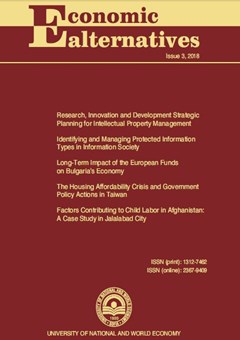The Housing Affordability Crisis and Government Policy Actions in Taiwan
Author: Chien-Hsun Chen
Abstract
Following the 2008 global financial crisis, the so-called easy monetary policy or Quantitative Easing (QE) was adopted by the United Stated, Europe and Japan. Due to the free movement of capital around the world, an increase in the monetary base (QE) policy has tended to push up housing prices in Taiwan. Since Taiwan had experienced rising income inequality aggravated by higher housing prices and stagnant wages since the late 1980s, income distribution and housing affordability rather than political issues became salient for Taiwan’s presidential election in January 2016.
As the effective demand for housing depends mainly on household income, the housing price and household income are two salient determinants of the affordability for home ownership. Taiwanese hold fast to the traditional Chinese value whereby ‘whoever owns property owns wealth.’ Housing has also been treated as an investment target for accumulating wealth. Indeed, the housing affordability problem is not on the supply side, but rather has to do with the excess demand for speculative investment.
To discourage speculation and increase land utilization, the vacant-land tax was suspended in 1985 and was reimposed in 2011. This tax scheme would increase the cost of land hoarding by 2% to 27.5%. Taiwan’s Central Bank has implemented selective credit control measures in certain administrative regions since June 2010.
Taiwan’s sluggishness in setting up high value-added industries resulted in worsening unemployment at 3.92% and low economic growth at 1.41% in 2016. If the Taiwan economy persistently lapses into a low-growth trap, the demand for housing purchases will accordingly decline. Due to the capital gains imposed on housing sales and the weak economic recovery, Taiwan’s real estate market registered its lowest growth in 26 years in 2016, with a record of 244,000 real estate transactions.

